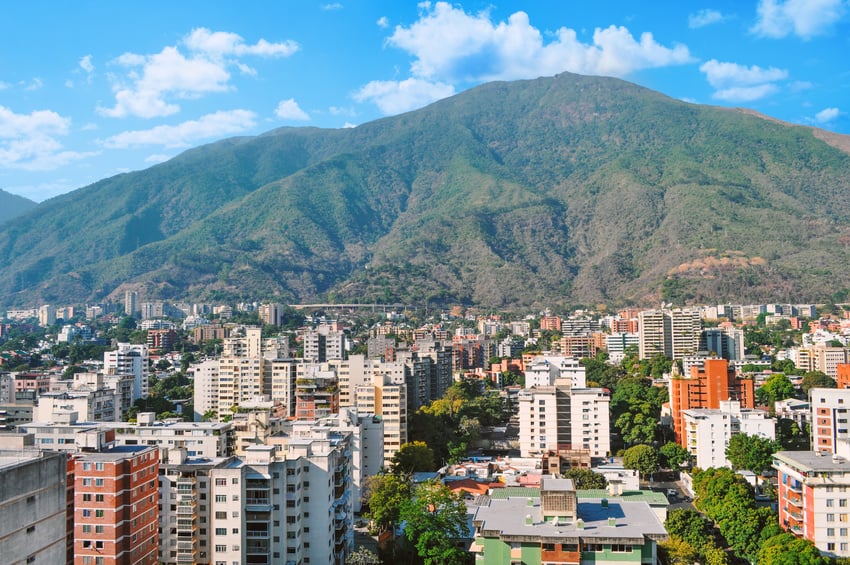In brief
On 19 January 2020, the Central Bank of Venezuela (BCV) issued new rules on the constitution of legal reserves of banking institutions (“Resolution“).1 The Resolution entered into force on 20 January 2020 and repealed the Resolution No. 20-03-01 (Official Gazette No. 41,840 of 30 March 2020). The legal reserve established in the Resolution must be in Sovereign Bolivars (VES), which is the legal tender.
The Bank for Economic and Social Development in Venezuela (BANDES) is not subject to the Resolution.
In further detail
The Resolution’s most relevant aspects are as follows.
1. Concepts
The Resolution defined these concepts:
- Net obligations: all deposits, fund-raising, obligations or passive operations, including liabilities derived from money desk operations and funds managed in trust, excluding certain operations2
- Assigned investments: the assignment of participation rights over titles and securities carried out by banking institutions
- Reserve deficit: amounts not covered in the reserve position
- Banking institutions: universal and micro finance banks, governed by the Law of Institutions of the Banking Sector, and commercial banks in the process of transformation before the Office of the Superintendent of the Institutions of the Banking Sector
2. Minimum legal reserve
The legal reserve is the reserve of money that by law banking institutions must keep in the BCV, as a percentage of the money they receive in both local and foreign currency. Banking institutions must maintain a minimum legal reserve equal to the aggregate of:
- 85% of net obligations or 31% if the operations are in foreign currency
- 85% of the assigned investments for banking institutions authorized to carry out operations in the money market
- 40% of the total net obligations in VES and investments assigned, as of 1 March 2021, for microfinance and development banks that promote public or private microfinance initiatives, and whose index of credit intermediation is at least 50%
The legal reserve position of each institution is determined in five-day periods from Monday to Friday, based on the average of the daily balances of the operations subject to legal reserve during the period. The BCV will determine the position of the legal reserve requirement weekly.
3. Supply of information
Banking institutions must report weekly to the BCV the required information for the reserve, through the form or other mechanisms proposed by the BCV. The BCV will establish the time and opportunity for sending the information.
4. Legal reserve currency
Banking institutions must fund the legal reserve in VES. The calculation, reporting and control of the reserve for operations in foreign currency will be carried out separately from those in VES.
5. Interests for reserve deficit
Banking institutions that present a reserve deficit will pay the BCV a financial cost calculated daily by the BCV with this formula:

- Where:
- COFIDE = daily financial cost applied to the reserve deficit
- d = days incurring a reserve deficit
- d+1= charging date of the financial cost
- tibacde = base annual interest rate for the charging of the reserve deficit
- idi = investment index published daily by the BCV
- The applied financial cost to the reserve deficit will never be less than 138%.
- “tibacde” is two percentage points greater than the interest rate charged by the BCV in its daily operations and will increment in these cases:
- two additional percentage points if the banking institution enters a reserve deficit between three and seven times within 30 days
- four additional percentage points if the banking institution enters a reserve deficit eight or more times within 30 days.
When the daily financial cost applied to the reserve requirement is less than 138% per year, banking institutions must pay the BCV an annual interest rate of 138% on the reserve deficit.
6. Special reserve
Banking institutions must maintain a special reserve of 1% of the credit assets and value investments they have according to their last balance when they do not inform in the terms established by the BCV.
7. Exclusions to interests for reserve deficit and special reserve
Banking institutions excluded from the Electronic Clearing House System, as well as those under intervention, are subject to neither the reserve interest rate nor the special reserve.
8. BCV’s amendment powers
The BCV may: (i) authorize banking institutions) to maintain reserve positions different from those established in the Resolution or the non-application of interest rates for the reserve deficit and the special reserve; and (ii) modify the minimum legal reserve.
1 Resolution No. 20-01-01 of 7 January 2021, issued by the BCV (Official Gazette No. 42,050 of 19 January 2021).
2 According to Article 4 of the Resolution, these are not considered Net Obligations:
-
- obligations of credit institutions obtained by the BCV
- those derived from financial assistance operations from the Social Protection of Bank Deposits Fund
- those that originate from national or foreign public funds destined for special programs in Venezuela
- those that originated from funds received by financial institutions destined by the law on financing and promotion of exportations
- those that originate from foreign currency because of activities of its offices abroad
- those that originate from operations with other banks and financing institutions
- liabilities from resources of the Savings Funds established in the Decree with Rank, Value and Force of Law of the Regime of Housing Loans administered in trust by banking institutions
- derived from gains received in foreign currency in the national financial system



